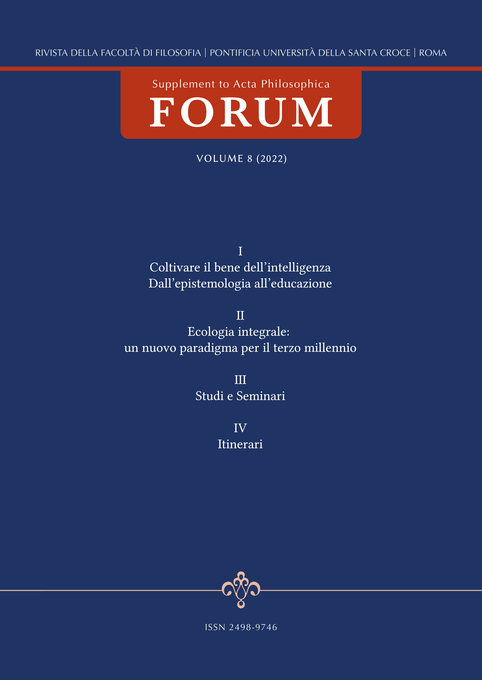Monisms in Perspective. Whitehead, Spinoza, Leibniz
DOI:
https://doi.org/10.17421/2498-9746-08-07Keywords:
Whitehead, Solidarity, Spinoza, Leibniz, MonismAbstract
In this paper, I shall argue against the standard interpretation of Whitehead as a pluralist by claiming that his system is a particular kind of monism. In my idea, the keyword of Whitehead’s process philosophy is the pivotal notion of solidarity, namely, the ontological kinship among the entities of the world and the world itself. To prove this contention, I firstly analyse the opposition between two metaphysical leading accounts: while, on the one hand, the classical view claims that entities are substances, on the other hand, the processist approach interprets reality in terms of processes. Whitehead’s foremost concern is to justify this latter and, at the same time, the fundamental interconnection of all things. Secondly, as the decision between monism and pluralism forcefully involves in the consideration of Spinoza and Leibniz, I compare their positions with Whitehead’s one. Because of Leibniz’s ideas of universal harmony and its notion of organism, I raise some doubts on his supposed well-acknowledged pluralism. At the same time, I show how Whitehead retrieves Spinoza’s modes to designate his events. Then, after having obtained strong analogies with both, I consider their systems in relation to God and attempt to show that Whitehead God’s subjective aim overcomes both Spinoza and Leibniz’s conception, even if Whitehead continuously refers to their philosophies. This leads to a perspectival monism that would link all three together.



